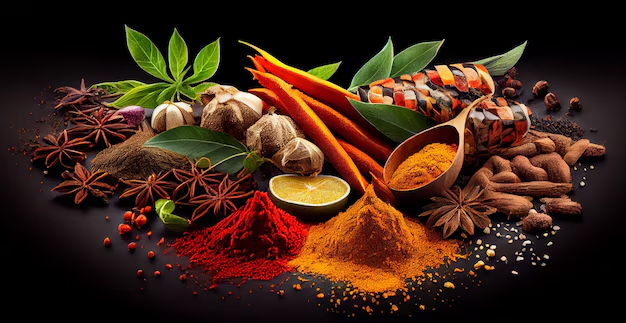Diabetes is a chronic condition affecting millions worldwide. While traditional treatments are essential, herbal remedies can offer additional support. This article explores how herbs can complement diabetes management, detailing their chemical constituents and pharmacological effects to enhance your health.
Understanding Diabetes
Firstly, understanding diabetes and its types is crucial:
- Type 1 Diabetes: An autoimmune condition where the body attacks insulin-producing cells in the pancreas. Individuals with Type 1 diabetes require lifelong insulin therapy.
- Type 2 Diabetes: Often associated with lifestyle factors, Type 2 diabetes involves insulin resistance, where the body’s cells do not respond properly to insulin, or insufficient insulin production.
Effective management involves maintaining blood glucose levels within a normal range to prevent complications such as cardiovascular disease, neuropathy, and nephropathy.
How Herbs Can Support Diabetes Management
Herbs can play a valuable role in diabetes management. They offer several benefits:
- Regulating Blood Sugar: Certain herbs contain compounds that help lower blood sugar levels.
- Enhancing Insulin Sensitivity: Some herbs support better insulin utilization by cells.
- Reducing Inflammation: Chronic inflammation exacerbates diabetes complications. Several herbs have anti-inflammatory properties that can help.
Integrating herbs into your routine can complement traditional diabetes management methods, potentially improving overall health and glucose control.

Top Herbs for Diabetes Prevention and Management
Several herbs have demonstrated effectiveness in supporting diabetes management. Here’s an in-depth look at some of the most beneficial ones, including their chemical constituents and pharmacological effects:
1. Cinnamon
Cinnamon (Cinnamomum verum) is well-known for its potential to enhance insulin sensitivity and reduce blood sugar levels. The primary chemical constituent responsible for these effects is cinnamaldehyde, which has been shown to improve glucose uptake by cells and enhance insulin receptor sensitivity.
- Pharmacology: Cinnamaldehyde works by mimicking insulin’s action, which helps lower blood sugar levels. It also has antioxidant properties that protect pancreatic cells from oxidative stress (1).
- How to Use: Add ground cinnamon to oatmeal, yogurt, or smoothies. Cinnamon sticks can also be used in teas or as a spice in various dishes.
2. Fenugreek
Fenugreek (Trigonella foenum-graecum) seeds are rich in soluble fiber, particularly galactomannan, which helps manage blood sugar levels by slowing carbohydrate absorption. Additionally, fenugreek contains 4-hydroxyisoleucine, an amino acid that improves insulin sensitivity.
- Pharmacology: Galactomannan and 4-hydroxyisoleucine work together to enhance insulin action and slow the digestion of carbohydrates, leading to more stable blood sugar levels (2).
- How to Use: Consume fenugreek seeds directly or in powder form. Add fenugreek powder to curries, soups, or smoothies.
3. Turmeric
Turmeric (Curcuma longa) contains curcumin, a compound with strong anti-inflammatory and antioxidant properties. Curcumin has been shown to reduce inflammation and oxidative stress, which are linked to diabetes complications.
- Pharmacology: Curcumin helps reduce insulin resistance by decreasing inflammation and oxidative stress. It also improves pancreatic function and insulin sensitivity (3).
- How to Use: Incorporate turmeric into your diet by adding it to curries and soups, or take it as a supplement. For enhanced absorption, combine turmeric with black pepper.
4. Ginseng
Ginseng (Panax ginseng) contains ginsenosides, which are the active chemical constituents believed to improve insulin sensitivity and lower blood sugar levels. These compounds modulate glucose metabolism and enhance insulin receptor activity.
- Pharmacology: Ginsenosides improve glucose uptake in cells and enhance insulin signaling pathways, leading to better blood sugar control (4).
- How to Use: Ginseng can be consumed as tea or in supplement form. Choose high-quality ginseng extracts to ensure effectiveness.
5. Bitter Melon
Bitter melon (Momordica charantia) contains charantin and polypeptide-p, compounds that mimic insulin and help lower blood sugar levels. It also has momordicin, which contributes to its anti-diabetic effects.
- Pharmacology: Charantin and polypeptide-p help reduce blood glucose levels by promoting insulin-like effects and enhancing glucose uptake in cells (5).
- How to Use: Cook bitter melon as a vegetable or drink it as a juice. It is also available in supplement form.
6. Berberine
Berberine, found in herbs like Goldenseal (Hydrastis canadensis) and Barberry (Berberis vulgaris), has shown significant effects on blood sugar control. Its primary chemical constituent, berberine, improves insulin sensitivity and helps regulate glucose metabolism.
- Pharmacology: Berberine activates AMP-activated protein kinase (AMPK), a key regulator of glucose and lipid metabolism. It also enhances insulin sensitivity and reduces insulin resistance .
- How to Use: Berberine is commonly taken in supplement form. Follow dosage recommendations from your healthcare provider to ensure safety and efficacy.

Key Considerations for Using Herbs in Diabetes Management
When incorporating herbs into your diabetes management plan, keep these considerations in mind:
Consult with Healthcare Providers
Always consult your healthcare provider before starting any new herbal regimen, especially if you are taking other medications. Some herbs can interact with diabetes medications, affecting their effectiveness or causing side effects.
Monitor Blood Sugar Levels Regularly
Regularly monitoring your blood sugar levels is crucial when adding herbs to your routine. This helps you track how herbs are affecting your blood glucose and adjust your treatment plan as needed.
Choose Quality Products
Opt for herbs from reputable sources to ensure purity and effectiveness. Look for standardized extracts and high-quality products to ensure consistent dosing.
Combine Herbs with Lifestyle Changes
Use herbs as part of a comprehensive diabetes management plan that includes a balanced diet, regular exercise, and proper medication. Herbs alone are not a substitute for a healthy lifestyle.
Additional Benefits of Herbs
Beyond supporting blood sugar control, many herbs offer other health benefits:
- Antioxidant Properties: Herbs like turmeric and ginseng help reduce oxidative stress, which can protect cells from damage .
- Heart Health: Certain herbs can support cardiovascular health, which is crucial for individuals with diabetes who are at higher risk for heart disease.
- Digestive Health: Herbs such as fenugreek can aid digestion and improve gut health, contributing to overall well-being.
Tips for patients managing diabetes
- Monitor Blood Sugar Regularly: Track glucose levels to ensure effective diabetes management and adjust treatment as needed.
- Adopt a Balanced Diet: Focus on a diet rich in vegetables, whole grains, lean proteins, and healthy fats to manage blood sugar levels.
- Incorporate Regular Exercise: Aim for at least 150 minutes of moderate aerobic activity weekly to improve insulin sensitivity.
- Stay Hydrated: Drink plenty of water to help manage blood sugar levels and support overall health.
- Manage Stress: Practice relaxation techniques such as meditation or yoga to help regulate blood glucose levels.
- Get Quality Sleep: Ensure 7-9 hours of sleep per night to maintain healthy blood sugar levels and support overall well-being.
- Use Herbal Supplements Wisely: Consider herbs like cinnamon and fenugreek under medical supervision to aid in blood sugar control.
- Regular Health Check-Ups: Schedule routine appointments with your healthcare provider to monitor diabetes progression and complications.
- Educate Yourself: Stay informed about diabetes management strategies and latest research for better health outcomes.
- Maintain Medication Adherence: Follow your prescribed medication regimen precisely to manage blood sugar effectively.
These tips are designed to be easily scannable and actionable, making them perfect for patients looking for quick, effective diabetes management strategies.
Conclusion
Incorporating herbs into your diabetes management plan can provide valuable support for maintaining healthy blood sugar levels and overall health. By using herbs like cinnamon, fenugreek, turmeric, ginseng, bitter melon, and berberine, you may enhance your diabetes management strategy. Always consult with healthcare professionals before making significant changes to your health regimen to ensure safety and effectiveness.
Related post for Disease and remedy>>>
References
- B. A. Kahn, G. M. K. & B. H. A. (2023). “Effects of Cinnamon on Glycemic Control: A Meta-Analysis.” Nutrition Journal. Link
- T. B. M. & M. S. (2021). “Fenugreek Seeds in Diabetes Management: A Review of Clinical Trials.” Journal of Diabetes Research. Link
- J. C. S. & R. A. W. (2022). “Turmeric and Curcumin: Anti-Inflammatory and Antioxidant Benefits in Diabetes.” Journal of Clinical Medicine. Link
- M. T. D. & A. R. K. (2023). “The Role of Ginseng in Diabetes Management: A Review of Current Evidence.” American Journal of Chinese Medicine. Link
- S. L. W. & P. M. L. (2022). “Bitter Melon and Its Potential Benefits for Diabetes Management.” Phytotherapy Research. Link
- F. T. K. & G. L. A. (2021). “Berberine and Its Impact on Glycemic Control in Diabetes.” Journal of Traditional and Complementary Medicine. Link
- L. S. W. & H. J. L. (2023). “Antioxidant Properties of Herbal Supplements in Diabetes Management.” European Journal of Nutrition. Link




